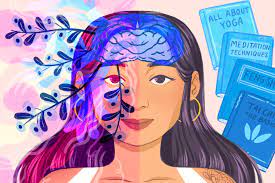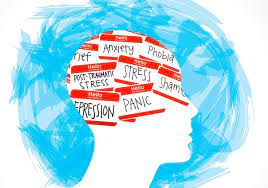Does Living Alone Affect Mental Health?
Adults living alone are more likely to experience common mental disorders like anxiety and depression for different underlying reasons. Psychological and physical health are interconnected, so the body’s stress response increases without close proximity to others.
Of course, not everyone living alone is lonely and suffering from CMDs. Some enjoy solitude and spending time by themselves. However, for those who are, seeking social and professional support can help to boost mental health.

In this article, we will tackle the risk factors that can increase the likelihood of having poor mental health and how to overcome them.
Factors That Contribute To Poor Mental Health
- Discrimination
Being treated unfairly for an individual’s ethnicity, age, gender identity, and race has been associated with adverse effects on one’s overall well-being and often leads to increased anxiety and depression.
Constant exposure to discrimination can lead a person to internalize the stigma directed against them, manifesting in stress and poor health.
- Trauma
Traumas can come from different sources, including domestic violence, bullying, disasters, and adverse early childhood experiences. It can make individuals more vulnerable to common mental disorders and can directly cause post-traumatic stress disorder.
People with PTSD tend to misuse alcohol and drugs, while some isolate themselves to cope with difficult emotions and avoid negative responses.
- Poor Self-Esteem
Low self-esteem is not a mental health problem in itself, but if many things affect an individual’s self-esteem for a long time, there is a higher risk of developing mental health problems like anxiety and depression.
Because people with poor self-esteem think they are not worthy of forming new social relationships, there is an increased risk of self-harm.
- Lack of Social Skills
People struggling in social situations tend to experience loneliness, anxiety, and depression because they cannot communicate or relate to others. Having poor social skills often leads individuals to isolate themselves and may slide into unhealthy habits.
- Family History of Mental Illness
Mental health illnesses can be inherited from parents through genes. Studies show that a variety of psychiatric disorders, including attention deficit hyperactivity disorder (ADHD), major depression, and bipolar disorder, tend to be passed on in families.
How To Promote And Maintain Mental Health

- Physical Exercise
Regular exercise can help improve an individual’s mood because chemicals like endorphins and serotonin are released. It helps reduce anxiety and depression and improve cognitive function.
Being more active makes a person feel better about themself, ultimately boosting self-esteem. Besides, physical activities divert an individual’s negative thoughts and emotions.
- Adequate Sleep
People experiencing existing mental health conditions find it challenging to get at least seven hours of sleep per night, which may worsen their mental health and cause mental distress.
Adhering to a consistent sleep schedule helps the body cope with minor stressors by calming and restoring them and improving an individual’s mood.
- Stay Connected to Others
Socializing through group therapies is good for the brain and relieves depression and other negative emotions. It increases a person’s well-being, promoting a sense of belongingness.
Interacting and confiding with people trying to cope with the same mental health condition can be especially helpful.
- Seek Professional Help
If a mental health problem affects an individual’s ability to function or is causing them to self-harm, seeking professional help would be a good idea. Many counselling services in Hong Kong provide sessions for people with mental health problems to empower and improve their quality of life.
Final Thoughts
Living alone can make people feel lonely and disconnected from others. Being isolated for a long time can take a toll on a person’s mental health and lead to serious health consequences.
Overcoming mental health problems can be a long and challenging journey. Learning coping skills and finding what works best can help. But, when things go out of hand, never hesitate to consult a mental health professional to address and improve the problem.